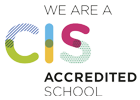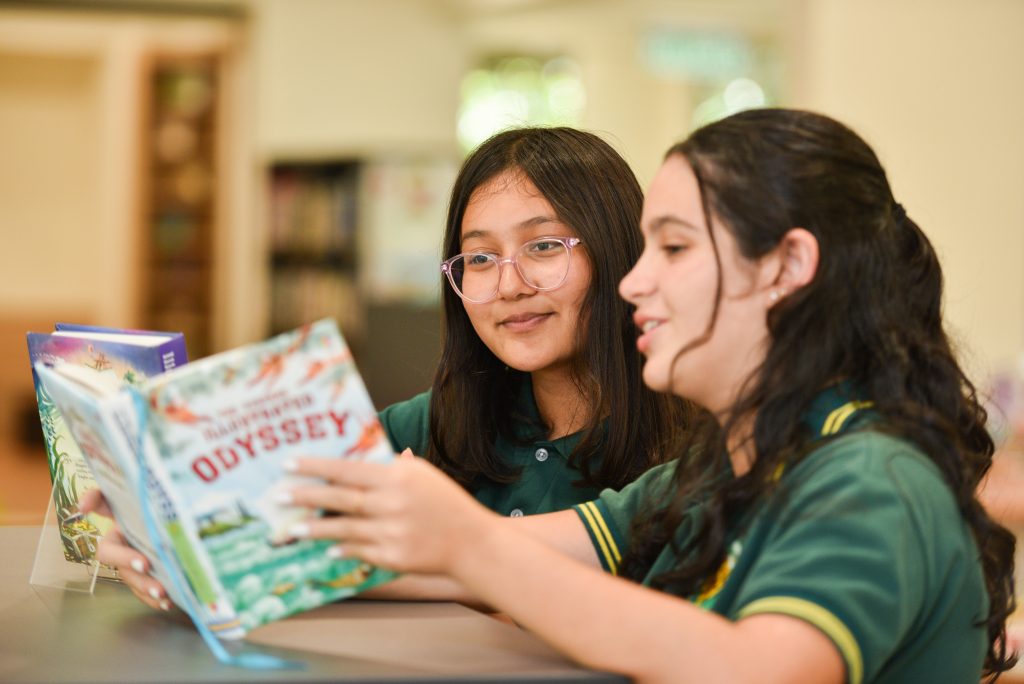Dear Uplands Secondary Parents and Students,
What is the best way to improve academically?
Read more!
Teachers are often asked how pupils can improve academically, and the number one answer we all give is “read more”. It is incredible how much reading can improve not only the quality of a student’s expression, but also their critical and creative thinking! And reading not only improves aptitude in Language and Literature class, but in all Uplands courses.
Why is summer reading important?
“Numerous studies indicate that students who don’t read or read infrequently during their summer vacation see their reading abilities stagnate or decline. This effect becomes more pronounced as students get older and advance through the school system.” US Dept of Education
When students don’t read over the summer, we see a decline in their reading skills, which means that they start the next year at a deficit. The summer break is a wonderful opportunity to get carried away with some reading. It doesn’t really matter what a student reads – a novel, last night’s football report, a tech magazine – as long as it’s well written and uses language in a thoughtful way.
We have created guides for each year level and DP course. Please take a look at the link that correlates with your learner’s class next year.
How can you help?
While we know many of you already promote summer reading – thank you! – here are a few more ideas to help make summer reading great:
- Make a To-Be-Read list. Sitting down with your child to create a “To-Be-Read” list is a great way to get the summer reading ball rolling. Use suggestions specific for each year level.
- Make it social. We love reading a great book and then talking to others about the book or, even better, passing the book on to them. Make reading a social aspect of your summer: have reading “parties” where students can discuss books or create a book swap with other families. Read with your learner or get more than one copy of a book (if you have access to them) so that others may join in the reading.
- Read aloud. Many home adults assume that their older kids do not want to be read aloud to, and yet our students tell us repeatedly how much they miss it. So why not find a great book and take some time to experience the book together?
- Use audiobooks. We love audio books and encourage your students to access books in any way possible. When your student is in the car, put on an audiobook. Put on an audiobook in the morning or evening for the whole family. Older students might enjoy listening while they exercise.
- Create a routine. Helping your child create a routine where reading is a natural part of the day means that they will create ownership over the habit, thus (hopefully) inspiring further reading. We encourage our students to read first thing in the morning before they get up or as the last thing they do before falling asleep. Whatever the routine may be, sit down and read yourself – it is vital for all of our children to see their home adults as readers.
- Allow real choice: Summer is when we reach for those books we cannot wait to read because they will suck us right in, where we fill up our reserves so we can perhaps finally tackle that really challenging book that we have been wanting to read. Don’t worry about whether the book seems too easy or too hard, just read great books. And summer is a great time to read books in other languages. Home language texts strengthen student’s reading ability, too. Or reading books in an additional language your student is trying to acquire is a wonderful activity for summer.
- If possible, surround your learner with books. You can have books in the car, in their rooms, in the kitchen, living room, etc. That way the books seem to fall into their hands at random times: stopped in traffic, quiet time before lunch, a sneak read before falling asleep.
- Allow and embrace abandoning books, but ask questions. When a child abandons a book, this is a great thing. They are learning that this book is not for them and they can use their energy for a book that will be for them. But ask questions so that they may think about what type of book they might like. Make sure that there are other books they want to read as well so that they can keep trying to find great books.
- Explore new books together. Summer can be a great time to try to push your own habits of reading, as long as it doesn’t feel like a chore. Set a reading challenge, compete against each other if you want, challenge each other to read each other’s favorite books, and revel in the shared experience.
- Be invested and interested. This does not mean that you ask your child to write reports about what they read. In fact, we would be very careful as to what type of work goes along with reading over the summer besides reading. But do ask questions. Ask whether they enjoy the book or not. What they plan on reading next. Read along with them or beside them. Make reading a part of your life so it can become a part of theirs.
- Keep it fun. Too often, especially if our child is not a well-developed reader, we can get nervous as parents and think that we must keep them on a regimented reading program. Have them read, yes, but keep it light and fun. The last thing we want to do is to make reading a bad experience that adds stress to your family.
We hope that summer is a time of relaxation and joy for all. Thank you for your support this academic year and we look forward to the new school year with your learner. As always, feel free to reach out with any questions you may have.
Incoming Y7-9 English Language and Literature Summer Reading
Incoming Y10-11 English Language and Literature Summer Reading
Incoming Y10-11 Chinese Language Summer Reading
Incoming Y10-11 Malay Language Summer Reading
Incoming Y12 English Language and Literature (SL and HL) Summer Reading
Incoming Y12 English Literature (SL and HL) Summer Reading
Incoming Y12 Chinese Language and Literature Summer Reading
Incoming Y12-13 Malay Literature Summer Reading
Incoming Y13 English Language and Literature (SL and HL) Summer Reading
Warmest regards,
Shannon Kerry and Michelle Morici
Uplands Language A Heads of Faculty


